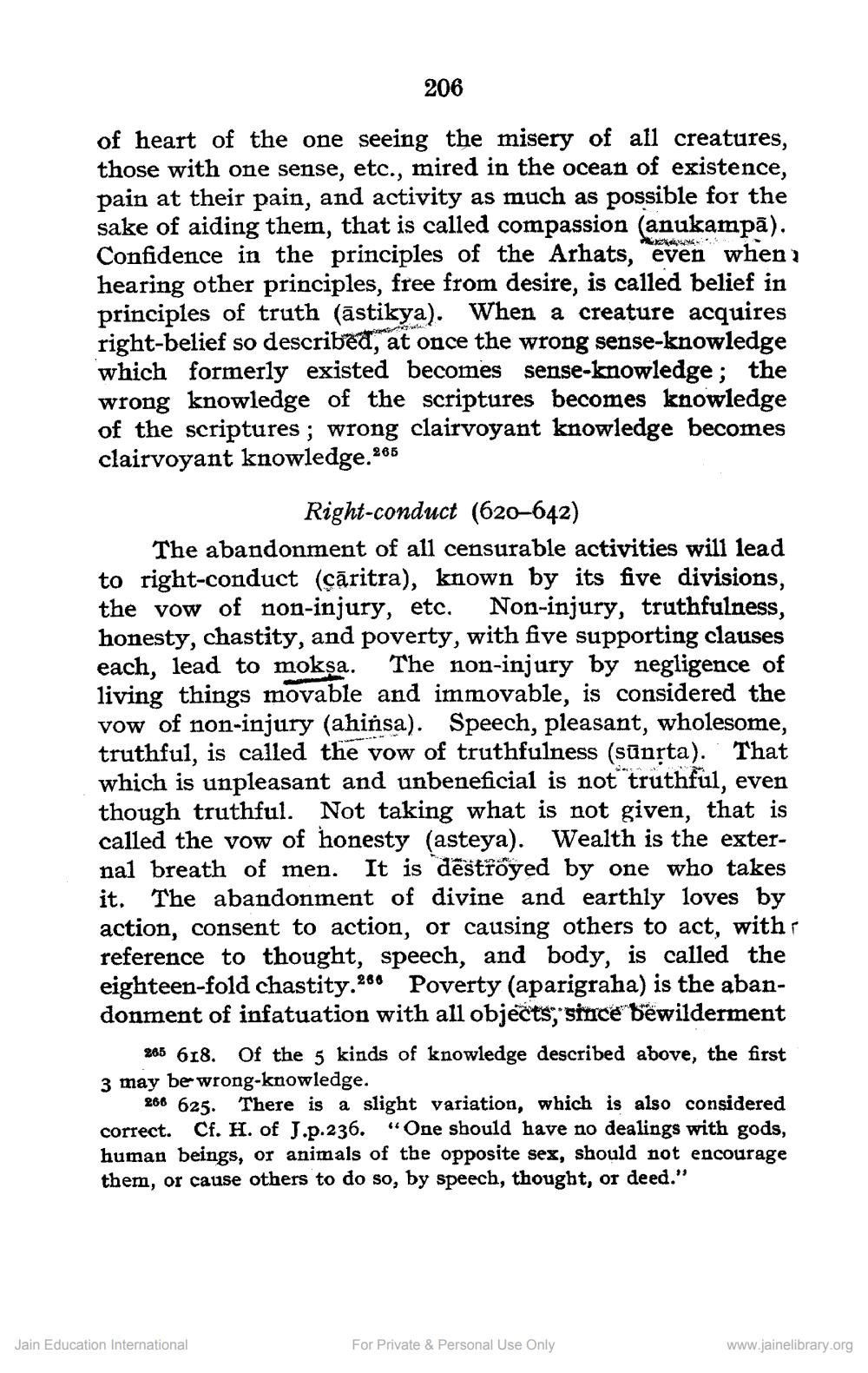________________
206
of heart of the one seeing the misery of all creatures, those with one sense, etc., mired in the ocean of existence, pain at their pain, and activity as much as possible for the sake of aiding them, that is called compassion (anukampā). Confidence in the principles of the Arhats, even when i hearing other principles, free from desire, is called belief in principles of truth (āstikya). When a creature acquires right-belief so described, at once the wrong sense-knowledge which formerly existed becomes sense-knowledge; the wrong knowledge of the scriptures becomes knowledge of the scriptures ; wrong clairvoyant knowledge becomes clairvoyant knowledge. 265
Right-conduct (620_642) The abandonment of all censurable activities will lead to right-conduct (cāritra), known by its five divisions, the vow of non-injury, etc. Non-injury, truthfulness, honesty, chastity, and poverty, with five supporting clauses each, lead to moksa. The non-injury by negligence of living things movable and immovable, is considered the vow of non-injury (ahinsa). Speech, pleasant, wholesome, truthful, is called the vow of truthfulness (sūnsta). That which is unpleasant and unbeneficial is not truthful, even though truthful. Not taking what is not given, that is called the vow of honesty (asteya). Wealth is the external breath of men. It is destroyed by one who takes it. The abandonment of divine and earthly loves by action, consent to action, or causing others to act, with reference to thought, speech, and body, is called the eighteen-fold chastity.266 Poverty (aparigraha) is the abandonment of infatuation with all objects, SITIce bëwilderment
285 618. Of the 5 kinds of knowledge described above, the first 3 may be wrong-knowledge.
268 625. There is a slight variation, which is also considered correct. Cf. H. of J.p.236. “One should have no dealings with gods, human beings, or animals of the opposite sex, should not encourage them, or cause others to do so, by speech, thought, or deed.”
Jain Education International
For Private & Personal Use Only
www.jainelibrary.org




